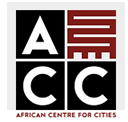Projects
FOOD, URBANIZATION, ENVIRONMENT & LIVELIHOODS (FUEL)
Dates: 2018-2021
Funder: SSHRC Insight
FUEL is looking at the food system of secondary African cities in Malawi, Cameroon and Namibia. In addition to baseline household food security surveys, the project is researching the role of informal food vendors and rural-urban links in these countries.
BUILDING CAPACITY IN URBAN FOOD SYSTEM GOVERNANCE
Date: 2018-2021
Funder: Queen Elizabeth Diamond Jubilee Advanced Scholars Program (QES-AS)
Three countries in the AFSUN network (Cameroon, Malawi and Namibia) are part of the QES-AS exchange program with Wilfrid Laurier University, the Balsillie School of International Affairs, the Centre for International Governance Innovation (CIGI) and Mennonite Economic Development Associates (MEDA). Further details about this project and individual scholars are available here.
INFORMALITY, INCLUSIVE GROWTH AND FOOD SECURITY IN CITIES OF THE GLOBAL SOUTH
Dates: 2014-2019
Funder: International Partnerships in Sustainable Societies (IPaSS) program, IDRC and SSHRC
Three countries in the AFSUN network (South Africa, Mozambique and Namibia) are part of a global network known as the Hungry Cities Partnership (which also works in Kenya, Jamaica, Mexico, India and China) (see www.hungrycities.net). This project is currently conducting surveys of informal food system vendors and entrepreneurship in Cape Town, Maputo, Nairobi and Windhoek in Africa. Several reports on the role and opportunities for youth employment and entrepreneurship in the food system of these cities are in progress.
LIVELIHOOD AND EMPLOYMENT STRATEGIES OF ZIMBABWEAN MIGRANTS IN SOUTH AFRICAN CITIES
Dates: 2015-2016
Funder: CIDA UPCD
This project was implemented in partnership with the Southern African Migration Project and focused on the precarious livelihoods of Zimbabwean migrants in Cape Town and Johannesburg through interviews with over 800 low-income migrants from Zimbabwe.
THE ECONOMIC IMPACTS OF URBAN REFUGEE ENTREPRENEURSHIP IN SOUTH AFRICA
Dates: 2016-17
Funder: UNHCR
The project focused on the business strategies and experiences of refugees running enterprises in the urban informal sector in Cape Town and Limpopo. As well as surveying 1,000 refugee-owned businesses, the project surveyed a control group of 1,000 South African informal business owners.
URBAN-RURAL LINKAGES AND FOOD REMITTANCES
Date: 2016
This project was undertaken under the umbrella of IIED’s Urbanisation and Rural-Urban Linkages Project and in partnership with AFSUN. The aim of the project was to assess the current state of knowledge on food remitting in Africa and its impact on rural and urban food security.
GROWING INFORMAL CITIES (GIC) PROJECT
Dates: 2011-2016
Funder: IDRC
The Growing Informal Cities (GIC) project was a partnership between the Southern African Research Centre (SARC) at Queen’s University, the African Centre for Cities (ACC), the Gauteng City Regional Observatory (GCRO) and Eduardo Mondlane University. The project aimed to provide actionable knowledge on the role of migrants in the informal sector in four cities: Cape Town, Johannesburg, Maputo and Harare.
URBAN FOOD SECURITY IN SOUTHERN AFRICAN CITIES
Dates: 2008-2017
Funder: Canadian International Development Agency UPCD Tier One Program
The African Urban Food Security Network or AFSUN (www.afsun.org) was formed in 2008 to conduct research on the determinants of urban food security in eleven Southern African cities in nine countries. One of the areas of research focus of AFSUN has been the relationship between urbanization, rural-urban migration and urban food security.




Follow Us